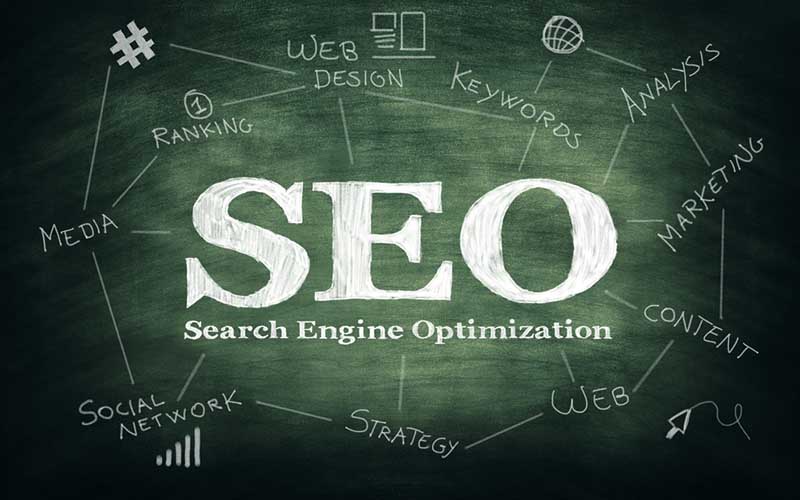Probably the largest issue in website optimization is the misconceptions that surround it. Many business owners believe that SEO is completely focused on using the right keywords or key phrases, building large collections of links, or purchasing first-page rank spots using Google® AdWords™. Those particular business owners couldn’t be farther from the truth. SEO has evolved.
SEO; What the heck is it?
Search engine optimization (SEO) is a set of rules that can, and should, be followed by website or blog owners to enhance and optimize their sites for search engines and in the process, improve their search rankings. Greater search rankings mean more people, and potential customers, are likely to find you and your business.
The process of optimizing a website involves not only a great deal of code-level modifications and adjustments to content, but moreover it involves crafting websites of greater quality, websites that are more user-friendly, faster, dynamic, and much easier to navigate. In short though, the process of SEO can be summed up in five basic steps.
- Analyse market and competition to determine relevant keywords or phrases.
- Apply code-level modifications and enhancements to the website to ensure maximum search engine accessibility and legibility.
- Create original, relevant, and meaningful content.
- Develop quality backlink networks with other businesses and top-level websites.
- Repeat … every month, every week… even every day in some cases.
Now, search engine management and optimization is a far cry from the days of old when managing SEO meant simply flooding the internet with shallow backlinks or throwing money at PPC drove your website to the top of search engine rankings, and the practice of search engine optimization itself has advanced, completely changed and indeed evolved to demand websites of quality, and content that has been optimized.
Pay-Per-Click (PPC); How Does It Work And Why Would You Do It?
A Pay-Per-Click or PPC campaign is a model of internet marketing in which the advertiser pays a fee each time an advertisement is clicked. Search engine advertising is certainly one of the most important forms of PPC. It is essentially a method of buying views of your ad and visits to your website, rather than relying on content creation and search engine optimization to “earn” visits organically.
In search engine advertising PPC, an advertiser places a bid for ad placement in a given search engine’s sponsored link section whenever someone searches for a predefined keyword or set of words related to the product or service the business is offering. This is easily viewed in any Google® search, for example:
Let’s say we were the owner of a welding business. If we bid on the keyword “pipeline welding’, our ad might show up in the very top spot of the Google® search results page. Every time our advertisement is clicked, it sends the visitor to our website and we have to pay the search engine (in this case, Google®) a small fee. When PPC campaigns are executed correctly, the fee becomes negligible. The idea is that the visit is far more valuable than what we’re paying for it. So if you pay $2 for a click, and the click results in a $200 sale, well, then it is of inarguable value.
A serious amount of work goes into organizing and implementing a successful PPC campaign. Researching and choosing applicable keywords or phrases wisely, and setting up relevant landing pages that are optimized for conversions. It’s no secret that search engines, particularly the major search engines like Google® actually reward advertisers who create intelligent, highly-relevant, and specifically-targeted PPC campaigns by charging less for ad clicks. If your ads and the pages they lead to are useful and informative for viewers, then Google® charges less per click and that means more profit in your bank account.
Is Your SEO As Responsive As Your Website Should Be? Let’s Hope So.
One catch to proper implementation of SEO practices is the changing face of the technology involved. Search engines like Google®, Bing! ® And Yahoo! ® don’t rest on their laurels while the rest of the internet machine marches forward. No sir. Search engine algorithms, the process by which any given engine prioritizes search results, are constantly changing. This means that although you might think you’ve achieved a perfectly optimized website, the rules can change at any given moment and any SEO professional worth his or her salt knows that you have to roll with the punches, adjusting ones’ practice of creation and optimization as the search engines and internet technologies evolve.
One example of this evolution is the demand for mobile responsiveness in a website. With the exponential increase in mobile device use over the past few several years, top search engines are ranking responsive websites higher than their static counterparts and the websites that refuse to get on-board, well they are dropping through the search results faster than they might realize. As well, PPC campaigns that were once viable for static websites lose tremendous value if the results of those advertisements are butting heads with the downward search spiral caused by a lack of proper website optimization.
It’s not to say that as of this moment all your SEO efforts are for naught, it just means that staying on top of your game and adjusting techniques to go with the flow is an absolute must. This not only applies to mobile responsiveness, but to every facet of your ongoing web presence and advertising.
If you are unable to commit to managing a search engine optimization campaign on your own, the services of a website optimization and search engine management team like the one at Alchemy Imageworks. Practical application and experience are the weapons with which one fights the search engine war.
SEO Builds Business Credibility.
When people search for something online, they don’t simply search once and jump on the first link they see, and they may not realize they’re doing it, but they make mental notes of the ranking and terms, click on a website or two, refine their search, click a few more sites and so on, until they arrive at the one that provides the most useful information or experience. In the minds of consumers, the search engine rank is a vote of confidence, since most people equate Google® page rank and relevance to actual status and relevance.
“Google says this particular business the best result, so that must mean it’s the best.”, seems far-fetched perhaps, but the demographics and results don’t lie. This is the mentality that gives a business at the top of the results more credibility that those further down the page, or on other pages altogether.
Still have questions? Interested in having a professional manage your search engine or PPC campaigns and website search engine optimization? Contact us!

